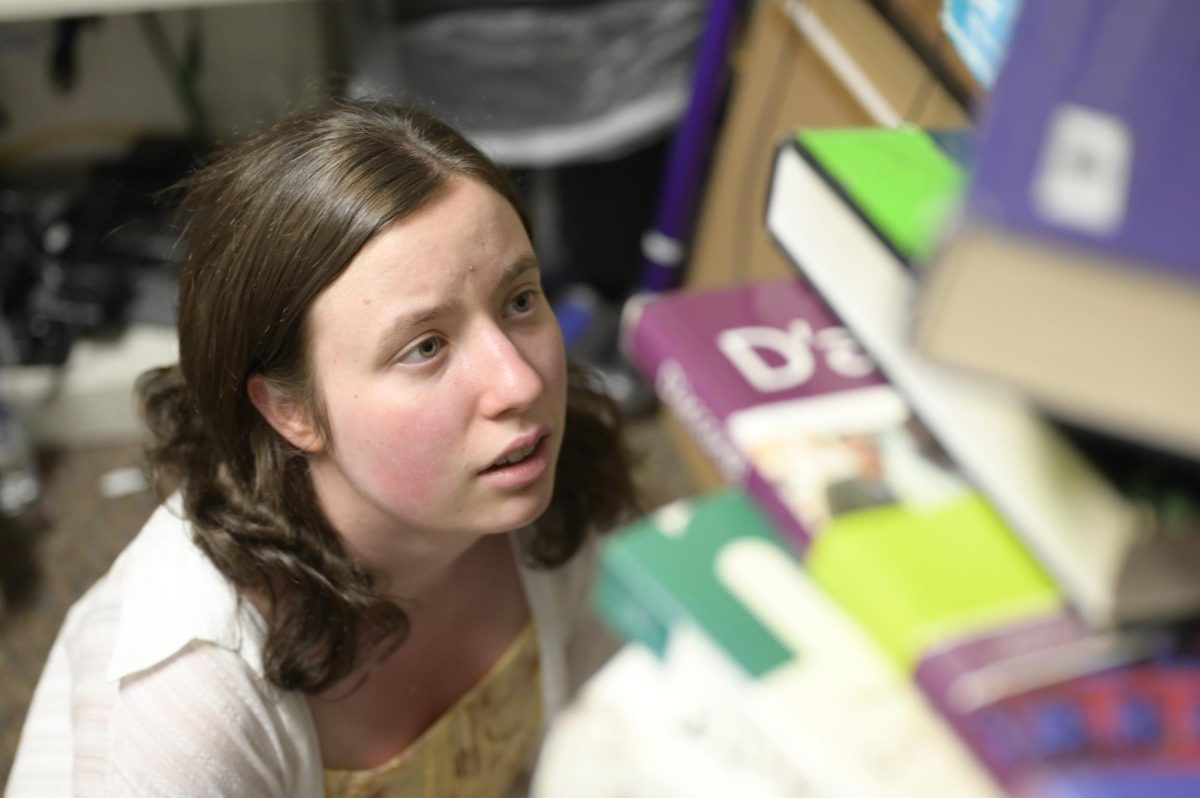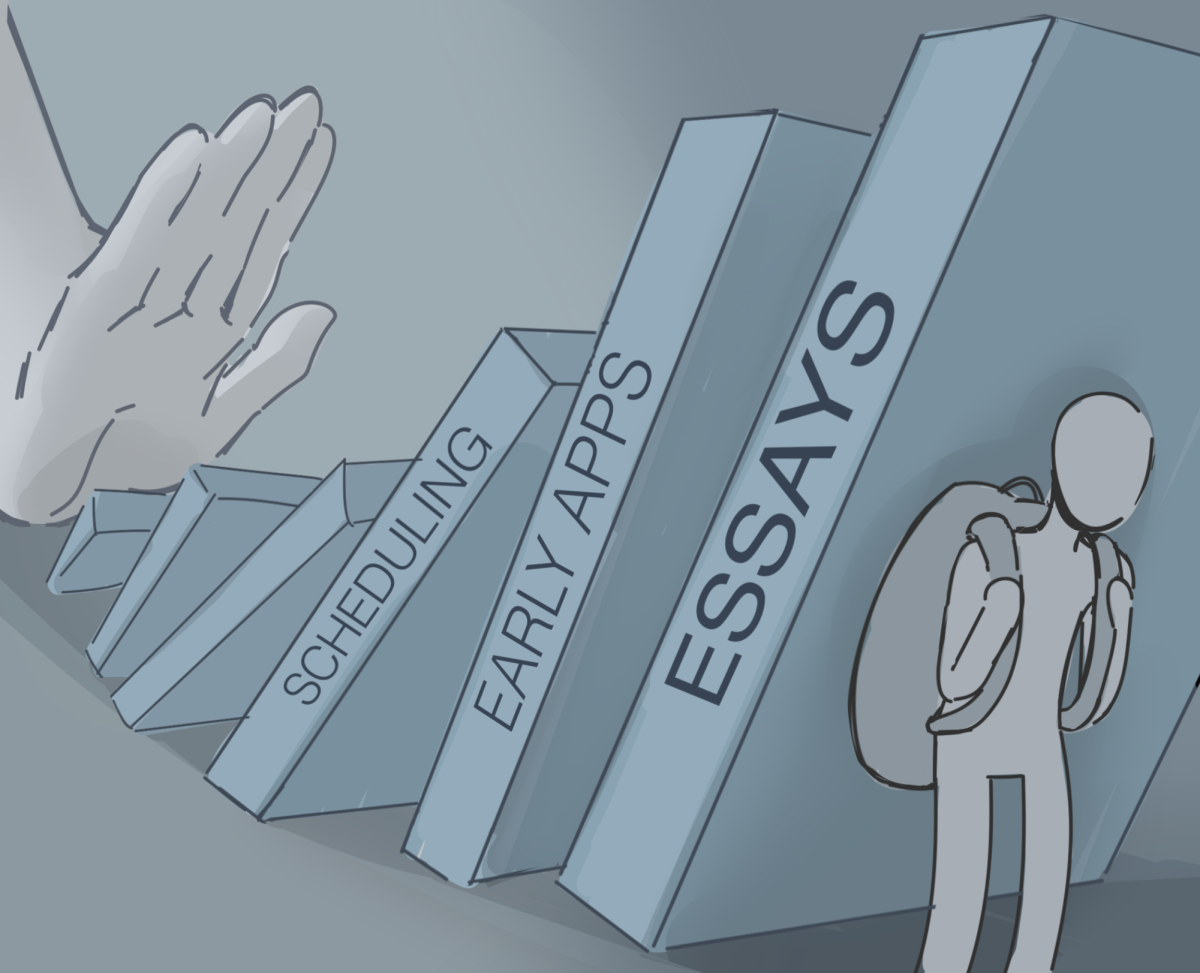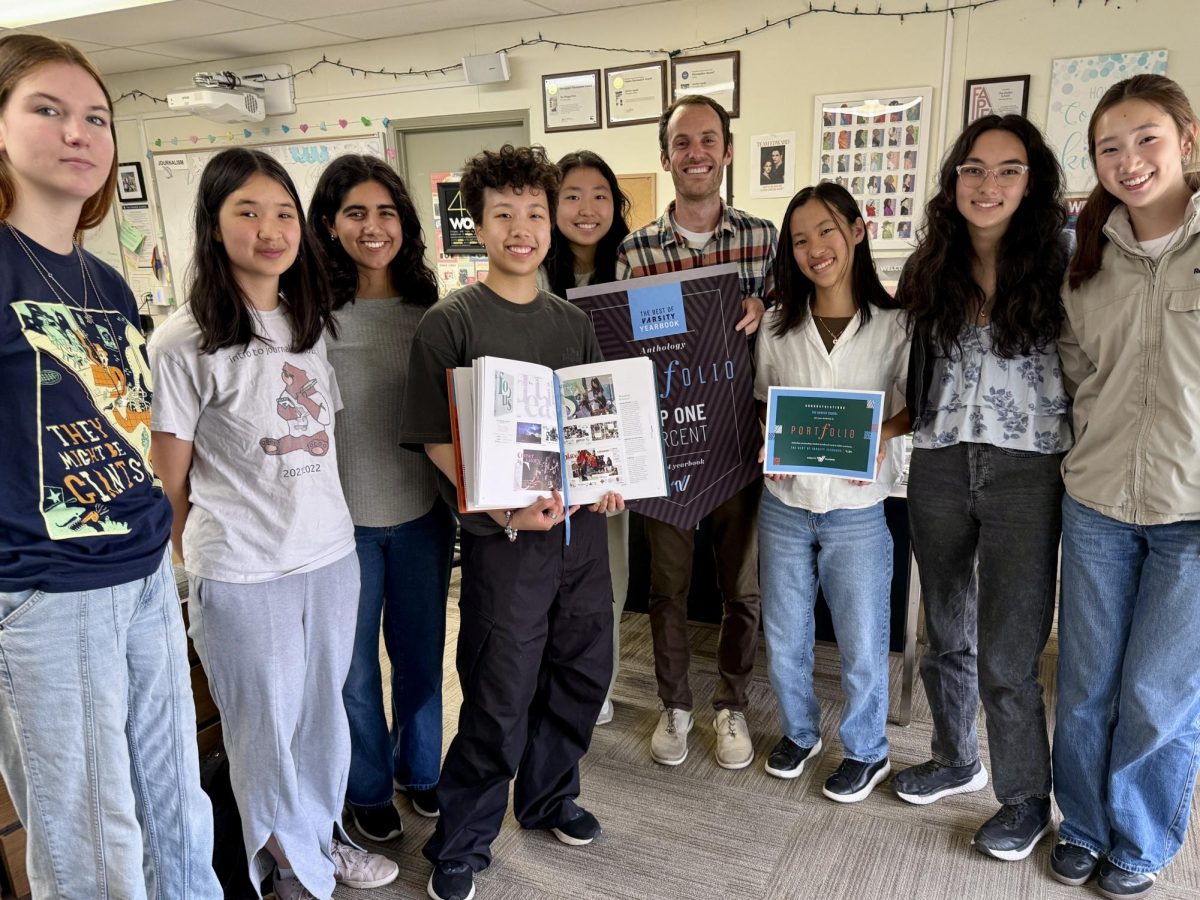Scanning the MBS online bookstore for the school year’s course materials, one word jumps off the screen: REQUIRED. The bright red font and all-caps letters precede each title. You check the box labeled: “Add to cart,” watching the price total climb higher with each additional item. When the package arrives, you organize each textbook neatly on your shelf. As the school year progresses, the same books lie untouched, their freshly printed pages gathering dust.
Students acquire new textbooks each year, only to discover that a significant number of them are nonessential. According to a Harker Aquila Instagram poll, 82% of 109 polled Harker high school students used fewer than half of their textbooks more than once a week, with 48% of students using fewer than a quarter of their required materials. Furthermore, 93% of respondents purchased textbooks that they never used over the school year.
This underutilization of course materials leads students to question their steep cost. Fifty-nine percent of student respondents spent upwards of $150 on textbooks for the upcoming year and 29% of students spent over $300. The lack of value that students find in some textbooks, however, invalidates their price.
The excessive cost of textbooks also causes students to turn to other means of acquiring their required books, including illegal piracy. Twenty-six percent of poll respondents sourced pirated versions, compromising their integrity as well as their cybersecurity, rather than spending upwards of hundreds of dollars on textbooks. Even if students source their textbooks from trustworthy online marketplaces, buying class texts only to underutilize them is wasteful.
To solve this issue, teachers can send out a poll at the end of the year asking whether students found their textbooks useful and reevaluate their material lists. Based on the responses, certain texts can be marked as optional resources rather than required on the MBS online bookstore. This way, students will be aware of which textbooks are not explicitly used during the school year. Those who want to use the textbook as an additional resource can do so knowing the benefits and trade-offs. If the material is intended merely as a supplement to the course, teachers can find online study resources that are freely available and supply those instead.
A voluntary textbook swap at the end of the year could help address the waste. Ninety percent of students polled expressed that they would be willing to recycle their textbooks at the end of the year for others to use. Eighteen percent of polled students responded that they receive textbooks passed down from friends and family members. Organizing an exchange throughout the school would make this a more widely popular option, allowing more of the student body to access this system.
Textbooks remain a cornerstone of many curricula. With proactive involvement from the community to evaluate and share academic resources, we can ensure that students only invest in materials that genuinely enhance learning instead of merely acting as burdensome expenses.


















![“[Building nerf blasters] became this outlet of creativity for me that hasn't been matched by anything else. The process [of] making a build complete to your desire is such a painstakingly difficult process, but I've had to learn from [the skills needed from] soldering to proper painting. There's so many different options for everything, if you think about it, it exists. The best part is [that] if it doesn't exist, you can build it yourself," Ishaan Parate said.](https://harkeraquila.com/wp-content/uploads/2022/08/DSC_8149-900x604.jpg)




![“When I came into high school, I was ready to be a follower. But DECA was a game changer for me. It helped me overcome my fear of public speaking, and it's played such a major role in who I've become today. To be able to successfully lead a chapter of 150 students, an officer team and be one of the upperclassmen I once really admired is something I'm [really] proud of,” Anvitha Tummala ('21) said.](https://harkeraquila.com/wp-content/uploads/2021/07/Screen-Shot-2021-07-25-at-9.50.05-AM-900x594.png)







![“I think getting up in the morning and having a sense of purpose [is exciting]. I think without a certain amount of drive, life is kind of obsolete and mundane, and I think having that every single day is what makes each day unique and kind of makes life exciting,” Neymika Jain (12) said.](https://harkeraquila.com/wp-content/uploads/2017/06/Screen-Shot-2017-06-03-at-4.54.16-PM.png)








![“My slogan is ‘slow feet, don’t eat, and I’m hungry.’ You need to run fast to get where you are–you aren't going to get those championships if you aren't fast,” Angel Cervantes (12) said. “I want to do well in school on my tests and in track and win championships for my team. I live by that, [and] I can do that anywhere: in the classroom or on the field.”](https://harkeraquila.com/wp-content/uploads/2018/06/DSC5146-900x601.jpg)
![“[Volleyball has] taught me how to fall correctly, and another thing it taught is that you don’t have to be the best at something to be good at it. If you just hit the ball in a smart way, then it still scores points and you’re good at it. You could be a background player and still make a much bigger impact on the team than you would think,” Anya Gert (’20) said.](https://harkeraquila.com/wp-content/uploads/2020/06/AnnaGert_JinTuan_HoHPhotoEdited-600x900.jpeg)

![“I'm not nearly there yet, but [my confidence has] definitely been getting better since I was pretty shy and timid coming into Harker my freshman year. I know that there's a lot of people that are really confident in what they do, and I really admire them. Everyone's so driven and that has really pushed me to kind of try to find my own place in high school and be more confident,” Alyssa Huang (’20) said.](https://harkeraquila.com/wp-content/uploads/2020/06/AlyssaHuang_EmilyChen_HoHPhoto-900x749.jpeg)






















